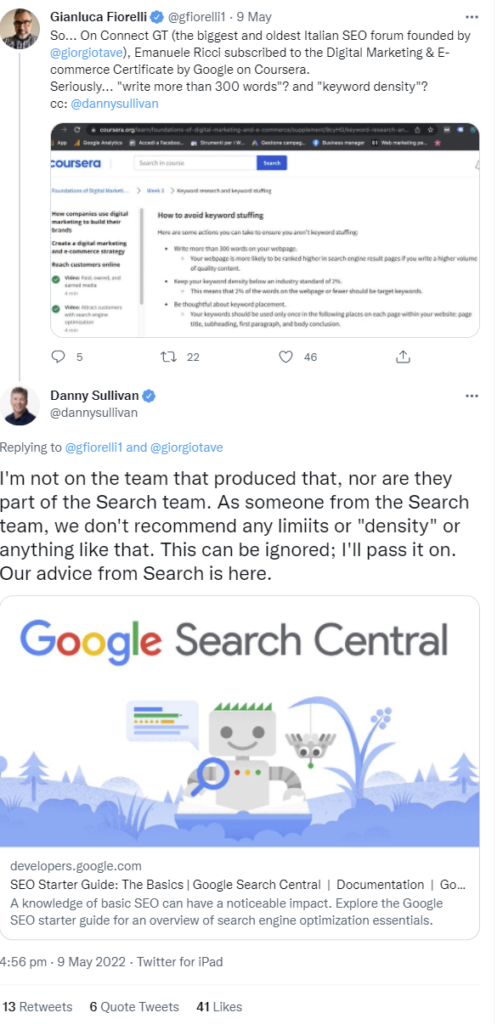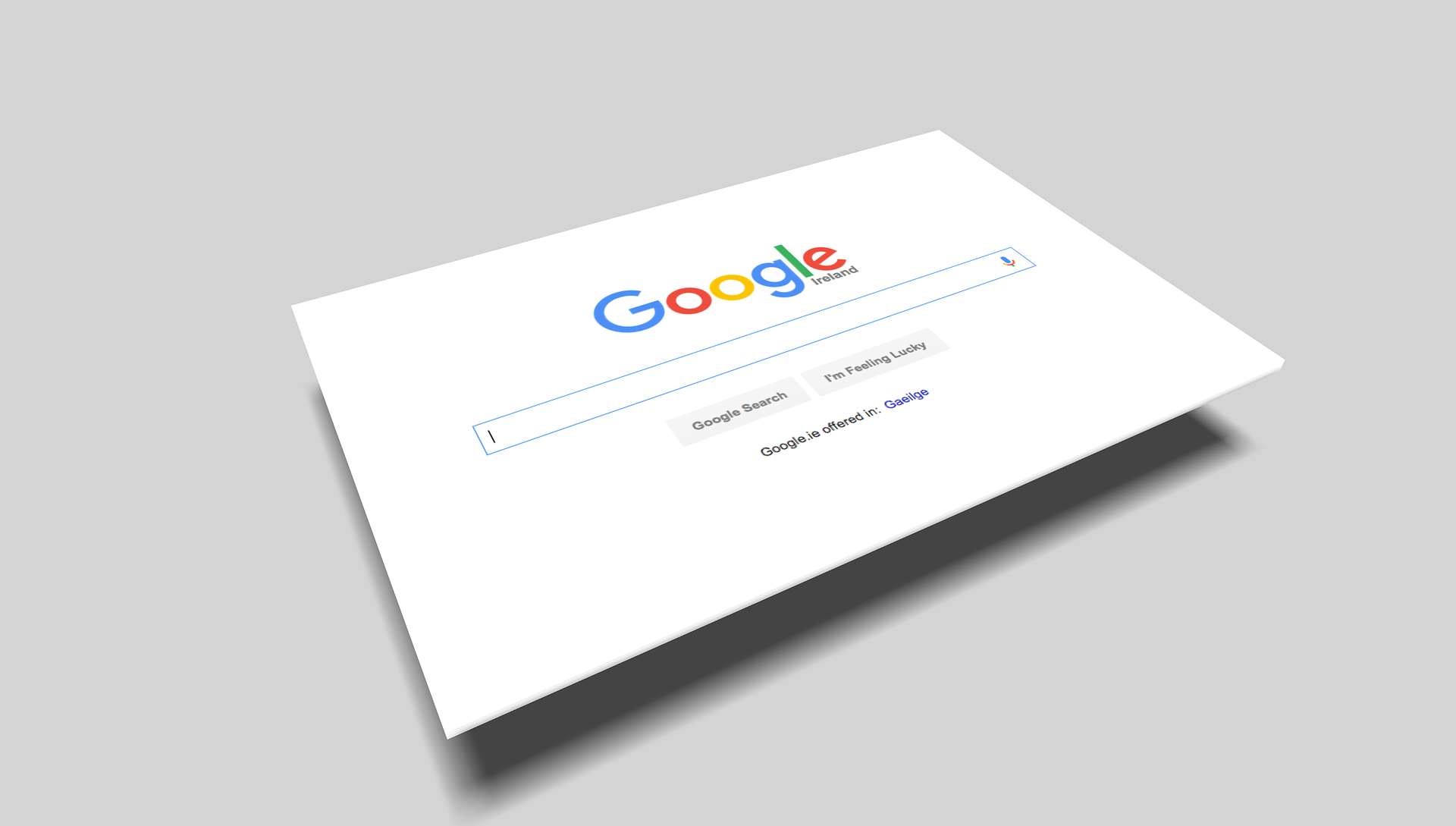Google’s digital marketing certification includes SEO recommendations for keyword density and word count
Google’s digital marketing certification includes recommendations for minimum word count and keyword density that contradict Google’s previous claims.
As recently reported, Google now offers a certification that includes SEO, among other disciplines such as email marketing. The course documents for this certification contain interesting recommendations on SEO that contradict previous statements made by Google. Specifically, it is about the word count and keyword density. So far, Google has always stated that there is no specific minimum number of words for pages and no recommended keyword density.
In the course documents, however, something else can be read. Under the heading “How to avoid keyword stuffing” it says, among other things:
“Write more than 300 word on your website. Your webpage is more likely to be ranked higher in search engine results pages if you write a higher volume of quality content.”
“Keep your keyword density below an industry standard of 2 %. This means that 2 % of the words on the webpage or fewer should be target words.”
SEO Gianluca Fiorelli discovered this and shared it on Twitter. Google’s Danny Sullivan responded quickly. He wrote that he was not a member of the team that wrote the recommendation. The search team doesn’t recommend limits, keyword density, or anything like that. The relevant recommendations can be ignored. He relays this:
“I’m not on the team that produced that, nor are they part of the Search team. As someone from the Search team, we don’t recommend any limiits or “density” or anything like that. This can be ignored; I’ll pass it on.”

As already feared, the SEO certification offered by Google will lead to misunderstandings – even though, according to Google, the course documents should come from proven experts from the respective Google teams.
Google would certainly do well to scrutinize the content of the courses and see if there are other sources of potential misunderstandings.




Top ,.. top top … post! Keep the good work on !
Thanks for your blog, nice to read. Do not stop.